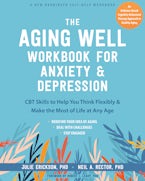Clients with anxiety disorders or obsessive compulsive disorder (OCD) can be prone to excessive reassurance-seeking from their therapist or significant others in their lives. These clients may frequently ask questions like, “What do you think I should do?” or “Is this normal?” or “How bad was that?” Providing reassurance can be an instinctual response to these questions, so therapists often need to override these tendencies and provide clients with an opportunity to tolerate uncertainty, exercise their own judgment, and regulate anxiety using healthier coping strategies.
When working with excessive reassurance-seekers in session, consider doing the following:
1. Remind the client that there is no certainty in an uncertain world. When we seek reassurance during heightened states of anxiety, it creates a false sense of certainty. At the end of the day, we all need to be able to practice making decisions using the information we have available to us at the time. Reassurance from others is not going to make the outcome of our decisions more certain.
2. Review the relationship between reassurance-seeking and anxiety. Remind clients that reassurance is strongly reinforced because it reduces our anxiety very quickly. Ask the client to provide an example of this and inquire what happened to their anxiety over the short term and long term. Clients will typically recognize that reassurance-seeking only provides short-term relief.
3. Use Socratic dialogue to explore the client’s experiences where reassurance wasn’t sought or where they had to rely on their own judgment. Ask questions such as:
“Tell me about a time when you weren’t able to seek reassurance; what was that like? What are the advantages and disadvantages of refraining from reassurance-seeking? How do you know you’ve sought enough reassurance? How does seeking reassurance impact trust in your own judgment?”
Julie Erickson, PhD, is a clinical psychologist, and adjunct faculty member in the department of applied psychology and human development at the University of Toronto. Erickson’s research interests focus on optimizing evidence-based psychological treatment for older adults, and reducing barriers to treatment-seeking. She offers workshops, seminars, and clinical supervision on cognitive behavioral therapy (CBT) with older adults. She maintains an active clinical practice focusing on the treatment of adults across the lifespan. Erickson’s research has been published in journals such as Aging and Mental Health, Depression and Anxiety, Clinical Psychology Review, and Cognitive and Behavioral Practice.



